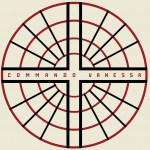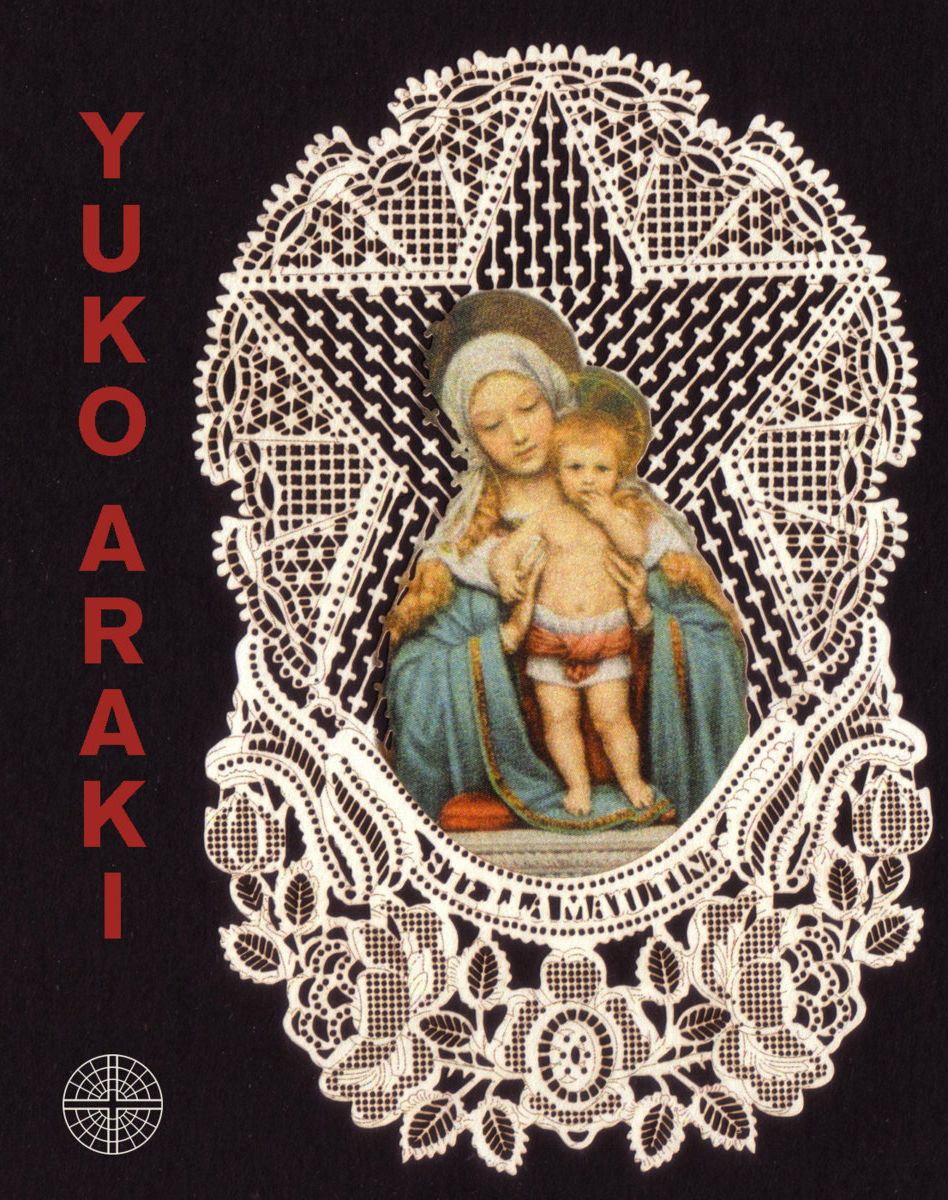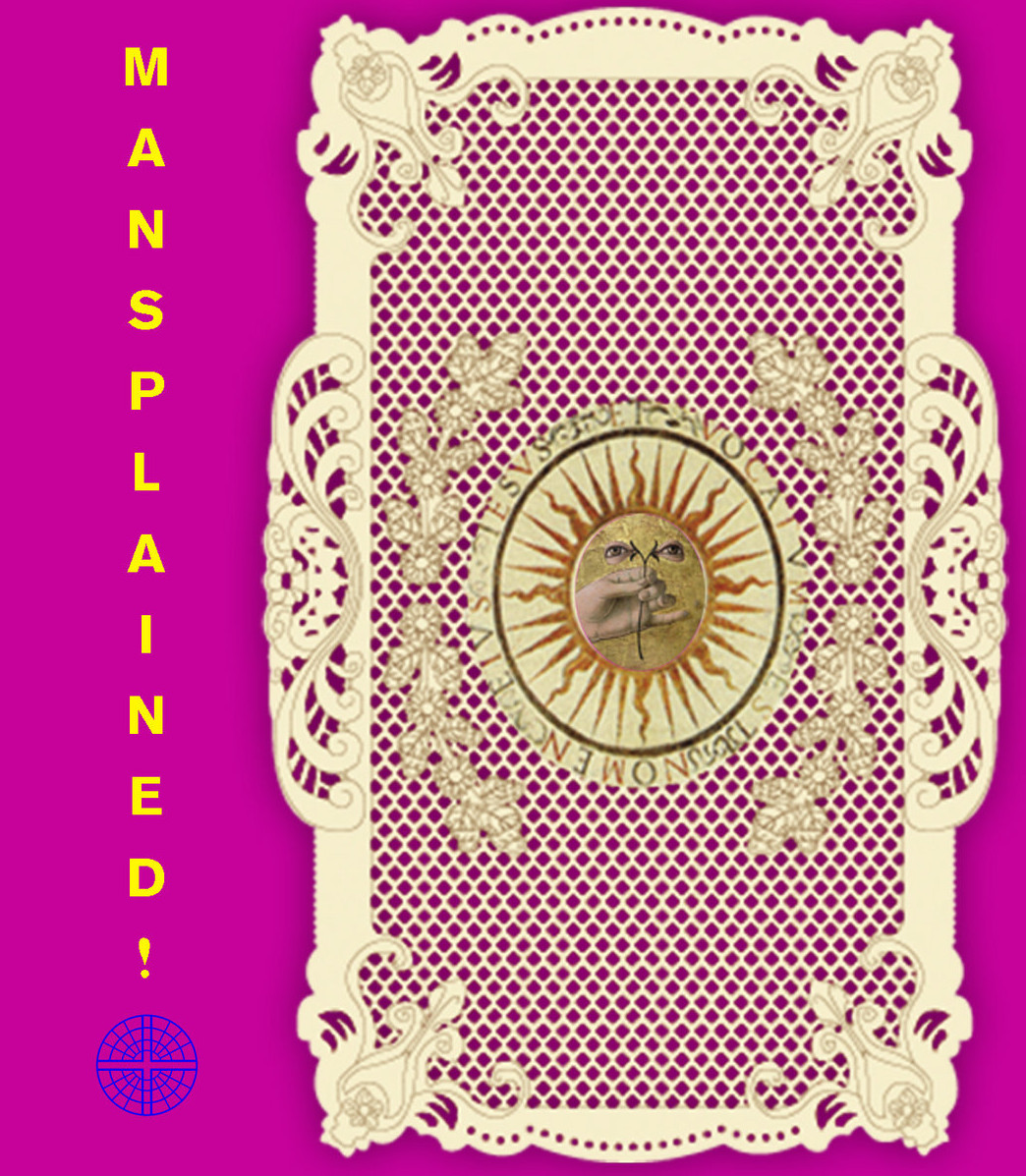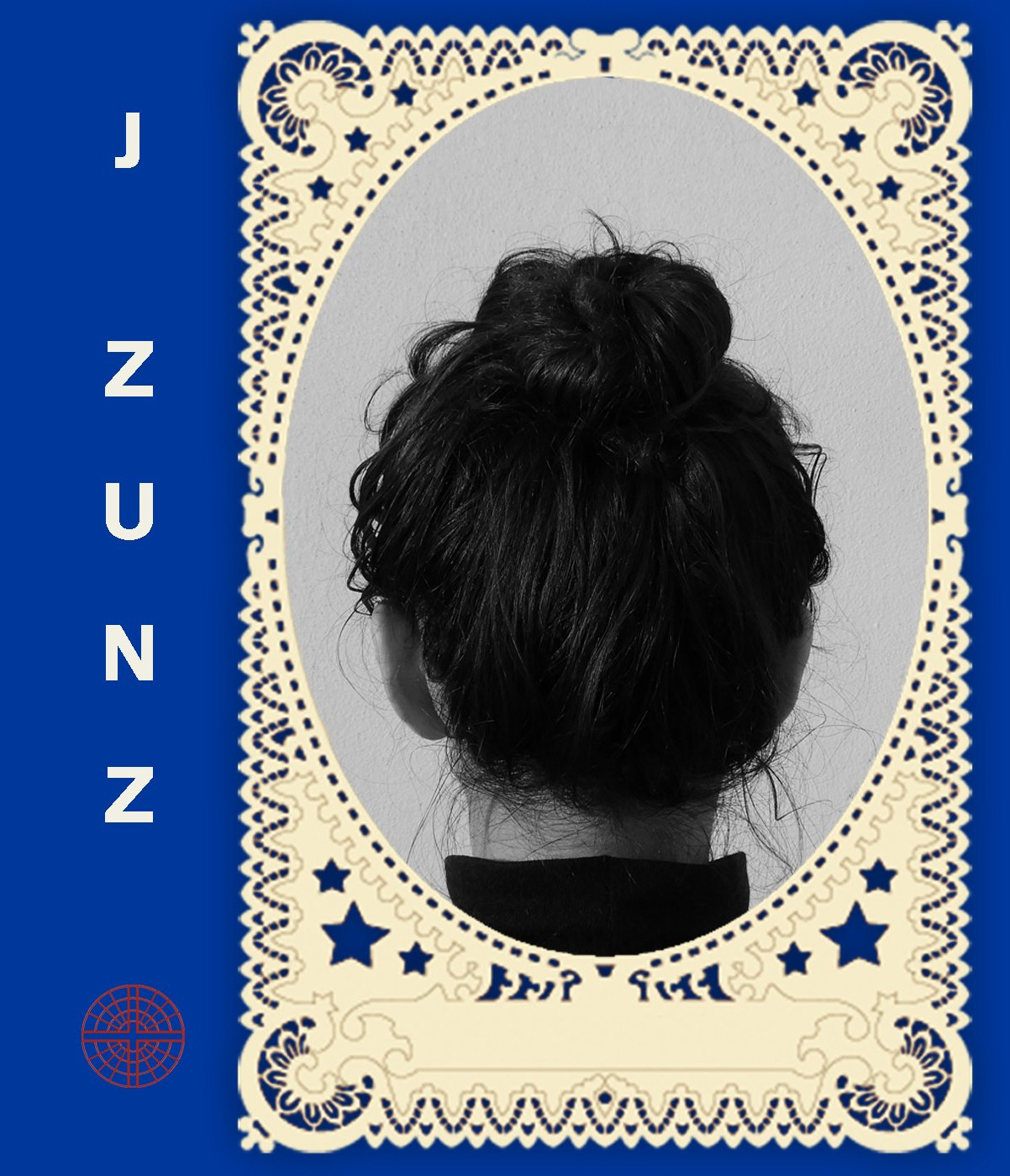 When two tapes – the debut of Tommaso Bonfilio aka Mother and “II” by Yuko Araki – were released by the then still rather unknown Italian label Commando Vanessa around two years ago, one immediately had the impression that something lasting was being created. The motifs of classical sacred art, framed in the ornamentation of nostalgic lace fabrics, a discreetly occult-looking logo, the charm of the handmade and the preservation of a certain obscurity that is basically a focus on the essentials – all of this revealed too great a will for style, to represent a publishing portal just born out of necessity. After seven cassettes by now – six albums and an anthology – Commando Vanessa and the circle of friends behind them have received quite some praise for their releases, which cover a stylistic panorama from noise and free improvisation to countless varieties of electronics and beyond and thus are not tied to any genre. In the following interview, we trace the many threads that run through the label’s discography so far.
When two tapes – the debut of Tommaso Bonfilio aka Mother and “II” by Yuko Araki – were released by the then still rather unknown Italian label Commando Vanessa around two years ago, one immediately had the impression that something lasting was being created. The motifs of classical sacred art, framed in the ornamentation of nostalgic lace fabrics, a discreetly occult-looking logo, the charm of the handmade and the preservation of a certain obscurity that is basically a focus on the essentials – all of this revealed too great a will for style, to represent a publishing portal just born out of necessity. After seven cassettes by now – six albums and an anthology – Commando Vanessa and the circle of friends behind them have received quite some praise for their releases, which cover a stylistic panorama from noise and free improvisation to countless varieties of electronics and beyond and thus are not tied to any genre. In the following interview, we trace the many threads that run through the label’s discography so far.
As far as I know, there’s several people who work in and for Commando Vanessa. Would you like to introduce yourselves a little bit and tell us who is responsible for what?
Commando Vanessa is a collective, a group of people that decided to work on this project giving up on egos and focusing instead on the artists. As a collective we don’t want to stress who the individuals behind it are because it is not the individuals that make Commando Vanessa what it is, it is the collectivity of people behind it, each of us work on something specific in order to make the whole system work. We believe that what we are and what we’ve done so far singularly doesn’t matter that much. That said, we also believe in contradictions, I mean, we try to be invisible but we are doing an interview with you…
What were the circumstances that led to Commando Vanessa?
There’s a huge difference between fantasy and desire. While fantasy is something that turns you on and makes you dream, desire is an obsessive and inescapable thought that will torment you if you decide to ignore it. Commando Vanessa was and still is a desire.
Your releases are available via download and in limited tape editions. Could you also imagine to put out music in other formats (vinyl for instance or also some unusual formats )?
The choice of the cassette is not accidental. It is an ideal format that allows manual intervention in every part of the process, you can handle all the different pieces one by one. It is a less abstract format than the others because you can personally manipulate it. For some reasons this could be seen as a less magical object, but for the same reasons it is in fact a lot more magical. While releasing vinyls is not in our plans, most probably some bizarre format will soon or later enter the catalog.
How would you describe your ideas concerning visual design and packaging? How important do you think is this aspect for a label in order to be something like a “trademark” and not just a company?
We don’t know how important “trademarks” can be for labels in general, but we know it is important for us. The fact that a label can be an artistic endeavor in itself with whom the artists and the fans can identify has been something we always aimed for. We really like the idea that the audience can recognize our tapes just from our aesthetic and choose to go for them regardless of the project. It’s a matter of trust. In a way this is an extension of the same concept behind the collective, you know that it’s Commando Vanessa, despite the names behind. To go a little into our design details, we work through a rigid aesthetic format, so all the releases share some characteristics. For the main releases for example all our covers are made of paper embroidered holy pictures, the used colors are always the same 3 that alternate, the tape has a small image insert in the transparent part inspired by the music of the cassette. As you can probably tell, we’re pretty obsessed with details.
How would you describe your ideas of DIY work in CV? You often use the name boutique label instead of more well-known terms that became hollow over the years…
DIY work is a way for us to better control all the process behind a release. Releasing only a few copies allows us to take the time to manufacture each copy; and if we are not able to do something we ask local manufacturers to help us. It’s really rewarding to go to a small local workshop and be able to physically touch the paper the cover will be made of or choose the paper colors not from a screen. You usually end up getting to know pretty interesting people and share experiences with them.
That’s why we like to use the term “boutique”, not in a fancy way, but in its original meaning of small shop, in order to underline this attention to details and the small run of copies we do for each release.
I often notice a certain pessimism when it comes to the possibilities of DIY approaches to music (and other creative things). Do you think, people should be a bit more adventurous in that, and if yes, what kind of a good example could CV provide?
We are not sure we can provide an example for other labels, but yes, we are strong supporters of the DIY approach. We think that what should be never stressed enough about the DIY ethic though is the community at its base. Doing it yourself doesn’t mean to try to do something your way without looking at other people’s examples, so the main thing for us has always been trying to be fluid, create networks, look at what other people do, collaborate with others, experimenting. This means a lot of work, failures, hours and hours of discussions and research, but being adventurous is the essence of it all and it’s what makes you keep going on and improve.
Did you plan to run the label permanently from the beginning, or was it more about certain releases that you wanted to bring out?
As for the label design, there has been a clear plan since the beginning. We worked hard on the concept behind the label before starting it, so we now have sort of a rhythm in the order of the releases, like the colors in our tapes’ design. You could say nothing is casual.
The first two acts you featured on your label were Yuko Araki and Tommaso Bonfilio’s project Mother. As both of them were active with certain band projects before, were you familiar with them, and was their music also a bit inspiring for CV’s concept?
We’ve personally known Tommaso for some years now and the bands he previously played with (SabaSaba, Blind Beast etc), while we got to know Yuko through Swamp Booking, her booking agency, not long before we released her album. We adored their music from the beginning but they didn’t inspire Commando Vanessa’s line, we decided that not being defined by a genre was to be the label’s genre long before deciding who to release first.
You described your stylistic frame just as “contemporary and unfamiliar music”, which encompasses a wide range of possibilities, and in fact, the releases so far were not restricted to any genres. Are there still any no-go areas for you?
There are still so many unexplored areas but none are forbidden! Sometimes the more something makes us uncomfortable, the more we are attracted to it.
Do you also see it as your mission to fill a gap in the current musical landscape?
We don’t think that a gap has to be filled, what we release exists regardless of us. So no need to go on a mission, we just try to help some projects we believe in to grow.
The name Commando Vanessa refers to a song by Vanessa Paradis. Does it also stand for the all-female endeavor that you are?
We actually got to know about “Commando” , the fantastic song by Vanessa Paradis, when we were buying the domain name for Commando Vanessa. We were googling the name to see if anybody already had a website with the same name and it came out.
Since then it’s now the dedicated soundtrack of all our meetings, which are top secret, as is our name…
The majority of artists you released so far are also female, and recently you put out your fist – “diverse, colorful, exaggerated, intimate, political, sexy” – compilation with the false-flag title “Mansplained!”. What can you tell us about the combative drive of the whole thing?
It still looks like if a woman does what she wants without caring about what other people think is a political action. And if her actions are perceived to be against a specific target, then she will also be labelled as a feminist. So Mansplained! was more something like a groan we let out on the way.
As we all know, sex and gender issues are quite polarizing for some years now. Do you think, music has the chance to bring people with different opinions (who are mostly also from different communities) into dialogue, or is your approach a more confrontative one?
Commando Vanessa creates alliances. It is a “command” of dissidents, without gender and without age who deconstruct gender in all its forms, contributing to the creation of new narratives in which we can self-represent and self-recognize. How to respond to a unique imaginary? Multiplying it. It is by multiplying the imaginaries that the struggle becomes intersectional, fighting marginalization and exclusion. This can apply to music as well. There is no normal and we don’t have to adhere to anything: there is only what we like and what we don’t like. It is not an identity struggle, but an inclusive one. We are aware of the fact that having an idea and transforming it into action can change the norm, it can decontextualize habits and make us behave without giving explanations. The alliances make questioning “normality” possible. To quote Diana J. Torres “to shake up the undisputed criteria is terrorizing. If this terror holds sex by the hand, the hot war is served ”.
You have proved to be true treasure hunters here. How did you get on pieces like Techno Thriller’s “Au feu et à l’eau”, Deeath Palace or Foie Gras’ side project Flawed God, to name just them?
There’s an endless research inside and outside of our network. We try to be open and to listen, welcoming external inputs, even if this has proved hard lately because of the lack of live music. We’d love for this process to slowly become more and more based on word of mouth, something through which to be able to share similar purposes and an attitude.
What can you tell us about the collaboration with video artist Greta Oto?
Greta Oto is Commando Vanessa’s sister who mainly uses the eyes as well as the ears to communicate its overall vision to the world. Greta Oto is the glue, it ask you to see beyond hearing. Greta Oto is two people.
You did a tape by Mexican musician Lorena Quintanilla’s project J.Zunz, who is already quite popular in her regional underground scene, and maybe you contributed significantly to her reputation on the other side of the Atlantic. Also Yuko becomes more and more well-known for some time now. Is your contribution to that something that motivates you to new adventures?
We believe the main purpose of a label really is to give more visibility to musicians, to help them grow. Most of the time just composing great music is not enough and most of the time composing great music doesn’t equal being able to promote oneself.
As a label we don’t just put out albums, but we work hard on promoting them. We feel it as one of our responsibilities and we take it quite seriously.
This might be bit of a “yellow press” question, but which would be the acts you would like to release on Commando Vanessa, but probably never will?
Moor Mother, Franco Franco, Boy Harsher, Macy Rodman, Thoom, Elvin Brandhi, Bella Cvir.. it’s actually a long list of musicians. Well, if any of you are reading this and interested just get in touch at commandovanessa@gmail.com
As to new adventures, of course we’re all curious about them, so are there already any secrets to reveal?
It’s still too early to talk about it, but of course we got something cooking in the pan.
We’ll secretly let you know about it soon.
Commando Vanessa @ Home | Soundcloud | Bandcamp | Facebook
